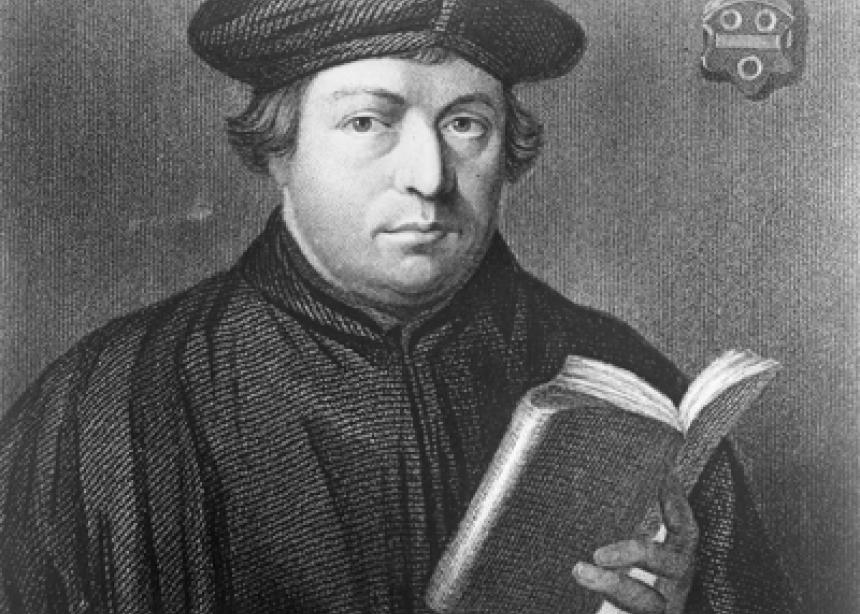Lutherans and Catholics have pledged to celebrate together the 500th anniversary of the Protestant Reformation in 2017, with both sides agreeing to set aside centuries of hostility and prejudice.
The Vatican and the Lutheran World Federation released a joint document, “From Conflict to Communion,” in Geneva on Monday (June 17) that said there’s little purpose in dredging up centuries-old conflicts.
The publication of Martin Luther’s 95 theses on Oct. 31, 1517, is traditionally celebrated as the birth of the Reformation that split Western Christianity into Catholic and Protestant.
In the document, the two churches recognize that in the age of ecumenism and globalization, the celebration requires a new approach, focusing on a reciprocal admission of guilt and on highlighting the progress made by Lutheran-Catholic dialogue in the past 50 years.
How to observe the landmark split is a sensitive topic in Rome, where some Catholics say there’s nothing to celebrate about a schism. Lutherans, too, are wary of a sense of triumphalism or taking pleasure in another church’s discomfort.
The document re-examines the history of the Reformation and the split it created, stressing that Luther “had no intention of establishing a new church, but was part of a broad and many-faceted desire for reform” within the church.
“The fact that the struggle for this truth in the 16th century led to the loss of unity in Western Christendom belongs to the dark pages of church history,” the document says. “In 2017, we must confess openly that we have been guilty before Christ of damaging the unity of the church.”
The joint document acknowledges that in today’s world most Christians live in the Global South and thus “do not easily see the confessional conflicts of the 16th century as their own conflicts.”
Even in the Old World, “the awareness is dawning on Lutherans and Catholics that the struggle of the 16th century is over. The reasons for mutually condemning each other’s faith have fallen by the wayside.”
After caricaturing each other’s beliefs for centuries, an honest theological confrontation between the two sides began after the modernizing reforms of the Catholic Church’s Second Vatican Council (1962-65), the document says.
It stresses that, thanks to the ecumenical dialogue of recent decades, Lutherans and Catholics “have come to acknowledge that more unites than divides them.”
In 1999, the Vatican and Lutherans signed a formal agreement on the doctrine of justification, the theological issue that was at the root of the separation of the church in the 16th century. The dispute was whether Christians could be saved by faith alone or also through their good works.
But today, even if they have come to an understanding on many core issues of faith, Lutherans and Catholics remain divided on matters such as the role of the pope, women’s ordination and homosexuality.
--June 18, 2013





Add new comment
Canadian Mennonite invites comments and encourages constructive discussion about our content. Actual full names (first and last) are required. Comments are moderated and may be edited. They will not appear online until approved and will be posted during business hours. Some comments may be reproduced in print.